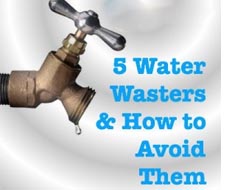-
5 Tips to Prevent Basement Floods
January 30, 2019Welcome to Inspector Pumphead’s classroom! This is the space where the Inspector serves up knowledge like Gordon Ramsey serves out vaguely offensive British insults in the kitchen. This week we'll be talking about how to keep your basement flood free. The Inspector would venture to guess that most people can agree one swimming pool is enough. You buried that orange shag carpet in the basement for a reason, you never wanted to see it again. Now there it is...floating on top of a basement shaped puddle along with a participation award in athletics and the rest of your valuables. Fear not though, the Inspector didn't go to 12 years of pump school and travel the globe in search of world's biggest pumping problems just to leave you whatever the opposite of high and dry is. Without further ado: Sump Pump & Backup The Inspector can’t stress this one enough. A reliable sump pump is the best defense against basement floods. Sump pumps act like a drain. They pump water safely away from your basement and surrounding foundations. The Inspector would recommend getting an automatic sump pump that turns on whenever the water reaches a certain height. The pump does the work for you, this way you can continue painting pictures of happy meadows from old Bob Ross reruns without interruption. Just as important as owning a sump pump, is maintaining a sump pump. Sump pump failure is among the most frequent causes of basement floods. If you’re aware of heavy rain in the near future, make sure your pump is clean and clear of debris. Debris can lead to potential clogging. Owning a backup can be crucial as well in case your first sump fails. A battery operated backup, for instance, will turn on in case the first one turns off due to a power outage. Paying for a reliable pump now can save later. If you’re in need of a new pump or backup you can browse our extensive collection of sump pumps. Gutters & Downspouts Having your gutters cleaned seasonally will be sure to prevent any debris from building up. Debris such as leaves and branches can get caught in your gutters and cause blockages. Blockages restrict flow and cause rainwater to pool. Once rainfall has pooled, it will start to dump directly onto your foundation. This can lead to not only flooding, but cracks in your foundation as well. Be sure to keep your downspouts positioned away from your foundation. A good rule of thumb to abide by is having water direct at least three feet away from your house. Install Window Wells Depending on the condition of your basement windows, you may need window wells. The frames of basement windows can be susceptible to cracks, warping, or mold. Window wells get installed directly onto a house’s foundation and can protect against water, dirt, and pesky insects. The Inspector would suggest getting acrylic wells as these can brighten up a dingy basement. Foundation Cracks There’s no better place for water to get invited into your home than from a crack in your foundation. Homeowners should regularly inspect their home’s exterior foundation as well as basement walls and floors. Foundation cracks can be filled in with epoxy while masonry sealer should be used on the home’s interior. For more serious cracks a professional may need to be called. Landscaping And last but not least- strategically placed shrubs and greenery can do more than just block out your neighbor’s Christmas decorations that they leave up until April. Consider your landscape when it comes to flooding especially if you live on the down slope of a hill where water is more likely to collect and flow. If you live on flat ground and water has nowhere to go, there are a few solutions for your lawn that can make a flooded basement less likely. You can install a lawn drainage system or use heavier mulch in your garden. An abundance of shrubs and plants helps to absorb excess water. Some homeowners even create small slopes in their landscaping in order to direct water away from their foundations. Pump Products application engineers are standing by to help you find the right pump, as well as to provide price quotes, stocking availability, and shipping information. Call our toll free number 1-800-429-0800 to speak to an expert today.
-
Pumps Make It Possible: An Introduction
May 3, 2017Is there anything more magical than the mighty pump A concept so simple and elegant - the transportation of fluid from one place to another - has changed human society and delighted people the world over. People are always coming up to me saying “hey Inspector, aren’t pumps great” and “You’re so lucky that you get to work with pumps everyday!” And as I always say in return: Brother, you ain’t lying. Of course, while everyone loves pumps, not all truly grasp just how important pumps are to the functioning of everyday society. For instance, did you know that pumps are the second most used mechanical instrument (regardless of application) in the world after the motor I bet that fun fact knocked you right out of your seat friend. But it’s true and it underlines how important pumps are to so many areas. An old adage in the pumping industry is that pumps are something you never think about until one breaks and suddenly getting a new one is all you can think about. Millions of people across the country that live in rural or outlying areas rely on pumps to get their water from a well. For these people, pumps are quite literally a lifeline. If you get your water from a municipal source, you might associate pumps more with wastewater or groundwater removal from a specific area. For instance, if you are a homeowner in an area that is prone to flooding, you surely know the importance of your basement sump pump. If you are a property manager and people are constantly flushing towels, diapers and plastic wipes down the toilets on your property, there’s a good chance you’ve familiarized yourself with grinder pumps. And so on. The majority of pumps that Pump Products sells can probably be segmented into a choice few categories (sump, sewage, well), a wide variety of other pump types are available as well. Pumps for hazardous areas (chemical resistant, explosion proof), pumps for residential areas, pumps for ice machines - all exist. There are probably as many types of pumps out there as there are possible fluid moving applications. Pumps can be used for aesthetic purposes, such as with water feature/fountain displays. These water features can range from the fountain in your backyard to the Bellagio fountains in Las Vegas. Anytime you see some crazy water display, remember that a pump is doing the hard work. Did you know that pumps are also involved in fermenting wine and in breweries. That’s right, the glass of wine or bottle of beer that you are (responsibly) sipping while reading this blog is only possible because of pumps. And in fact that’s the point of this blog and the “Made Possible by Pumps” campaign: to educate the populace on the important power of pumps. Over the coming weeks, I will highlight how different aspects of human society - commerce, customs, clothing, manufacturing, entertainment, art - are powered (at least in part) by pumps. Hopefully this endeavour will let you appreciate these simple but wondrous machines. So look out for blog posts, features and other content tagged “Made Possible by Pumps” to learn more! Pump Products application engineers are standing by to provide technical assistance, price quotes or to answer any questions you may have regarding pumps. Call our toll free number 1-800-429-0800.
-
Pump Products’ Top 5 Water Wasters
March 5, 2014Five Water Wasters to Avoid At Pump Products, effective water management is at the heart of our business. The approach of spring means it's time to start thinking about best practices for limiting water waste and reducing monthly water costs. We asked our Product Experts for some of the most common water wasters they encounter in residential and commercial pump applications and here's what they said. (more…)








